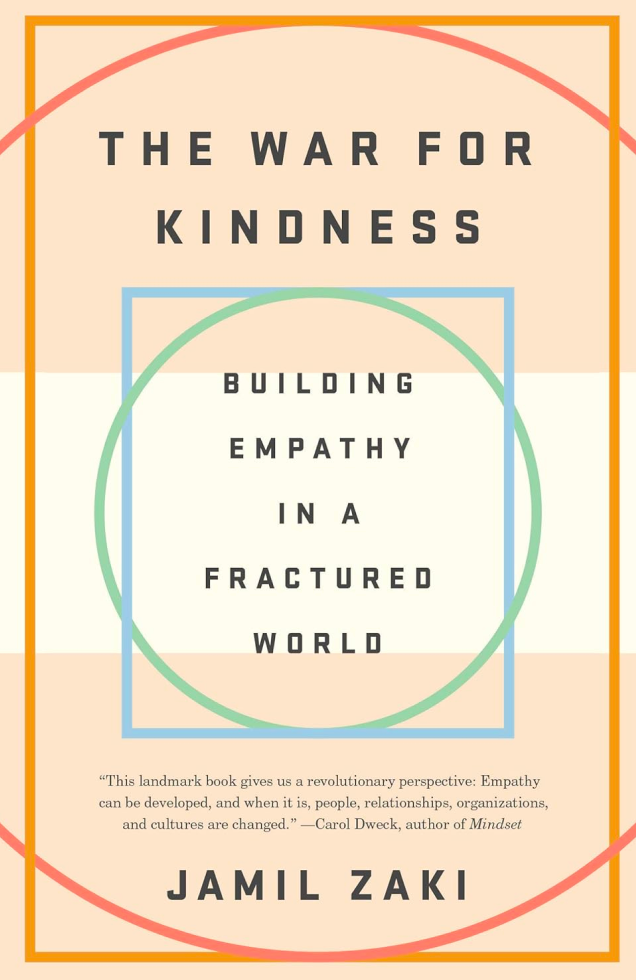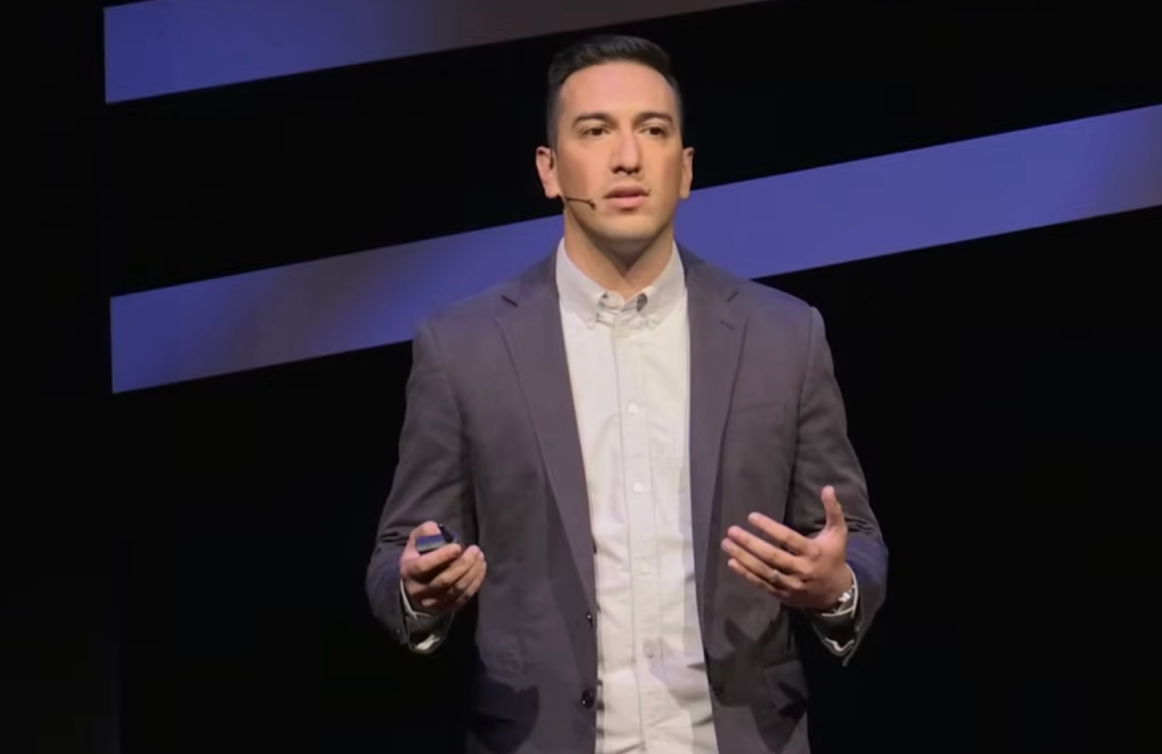
“The War for Kindness: Building Empathy in a Fractured World” by Jamil Zaki
Empathy is in short supply and we need more of it. Jamil Zaki, professor of psychology at Stanford University and the director of the Stanford Social Neuroscience Lab, explains the benefits of empathy and how we can all contribute to creating more empathy in the world.
Zaki begins with sharing the story of his parents and their divorce and how that put him in an environment to practice empathy for both parents.
He calls the belief that empathy is determined by genetics the “Roddenberry Hypothesis” (from Star Trek). He counters this by arguing that empathy can be developed and “we choose to use or avoid it depending on whether it seems useful.”
Building empathy requires meeting people where they are. “Hatred buries empathy but does not kill it.” No matter our past, we have the power to redefine ourselves and choose empathy going forward. Throughout the book, Zaki shares research and stories of people who demonstrate this idea.
Check out Jamil Zaki’s Kindness Challenges (Empathy Gym) on the website link below.

“We’re experiencing an empathy shortage, but we can fix it together” by Jamil Zaki
In this TED Talk, Jamil Zaki emphasizes that empathy is not a fixed trait but a skill that can be strengthened through intentional practice. It’s a choice that we are met with thousands of times a day. When we choose to exercise empathy, we choose to not only treat others with more kindness and understanding, but we also grow ourselves. Zaki states through research how people who are told that empathy as a skill are more motivated to work on exercising it. Practicing empathy creates empathetic habits which creates empathetic people. Zaki also gives examples of people who have changed their lives and now demonstrate empathy in their values and work, which assures how we as humans are always growing and forming. Empathy is malleable. Zaki ends his talk by stating, “Empathy is not just a precious resource it’s also a renewable one.” How will you lead your life knowing that empathy is your choice?
